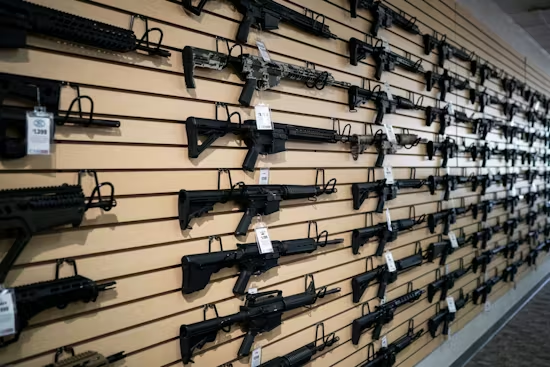Already a subscriber? Make sure to log into your account before viewing this content. You can access your account by hitting the “login” button on the top right corner. Still unable to see the content after signing in? Make sure your card on file is up-to-date.
The United States Supreme Court has unanimously ruled to dismiss a lawsuit brought by the Mexican government against US gun manufacturers.
Some shit you should know before you read: Back in August 2021, the Mexican government filed a lawsuit in federal court against major US gun manufacturers, including Smith & Wesson, Colt, Glock, Beretta USA, and Interstate Arms. Mexico argued that these companies were complicit in the illegal trafficking of firearms across the US-Mexico border by knowingly supplying weapons to dealers who, in turn, sold them to criminal organizations. The government claimed the manufacturers designed and marketed firearms in ways that appealed to drug cartels (such as military-style weapons and guns with Spanish-language branding) and had turned a blind eye to criminal misuse. Mexico said that the resulting gun violence had imposed a severe burden on its society, law enforcement, and economy, and sought up to $10 billion in damages. The case was initially dismissed by a federal district court, but the 1st US Circuit Court of Appeals revived it in 2024, ruling that Mexico’s claims might qualify under a narrow exception in US law. Following that decision, Smith & Wesson and Interstate Arms appealed, bringing the case before the United States Supreme Court.

What’s going on now: In a notable development, the United States Supreme Court decided to unanimously dismiss Mexico’s lawsuit against US gun manufacturers, ruling that the case was barred by the 2005 Protection of Lawful Commerce in Arms Act (PLCAA). The Court said that the law grants broad immunity to gun manufacturers from lawsuits seeking damages for crimes committed with their products, unless there is clear evidence that the manufacturers directly violated gun laws or actively participated in criminal conduct.
Writing for the Court, Justice Elena Kagan stated that Mexico’s complaint “does not plausibly allege that the defendant manufacturers aided and abetted gun dealers’ unlawful sales of firearms to Mexican traffickers.” Justice Kagan stressed that mere knowledge of trafficking or even indifference to it was not sufficient to meet the legal threshold for aiding and abetting liability. She wrote, “We have little doubt that, as the complaint asserts, some such sales take place — and that the manufacturers know they do. But still, Mexico has not adequately pleaded what it needs to: that the manufacturers’ participated in those sales.”
The Court also rejected Mexico’s argument that certain design and marketing choices (such as Spanish-language engravings or historical references) indicated intentional targeting of cartel buyers. “While they may be ‘coveted by the cartels,’ they also may appeal to ‘millions of law-abiding Hispanic Americans,'” Kagan wrote, dismissing the claim that such features constituted willful promotion of illegal use.







